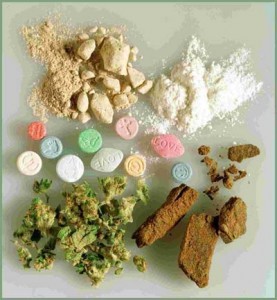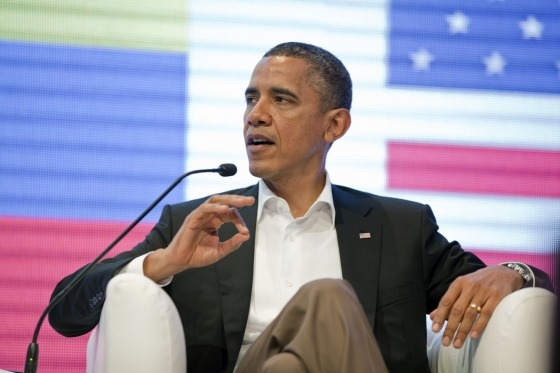The HeadCount blog is a forum for our community where we welcome all opinions and perspectives. The following does not necessarily represent the views of the HeadCount organization. We welcome anyone with an opposing viewpoint to become a contributor to our blog. Please email [email protected] for more information.
If you heard anything about last weekend’s Summit of the Americas in Colombia, it probably had something to do with the Secret Service agents and military personnel who are under investigation for their alleged participation in a prostitution scandal while working the event. It’s a shame that got all of the media’s attention because far more important things were happening at the Summit itself. For the first time in decades the current leaders of various Latin American countries forced the United States to discuss a serious issue that receives too little attention in this country: drug policy reform.
The Presidents of Guatemala, Colombia and Costa Rica used the annual gathering for the discussion of alternatives to the War on Drugs. Much of Latin America has been ravaged by drug-related violence for decades, and the cartels have only grown more powerful in recent years. Faced with few options, these leaders have decided that ending the War on Drugs is the only way to take the power away from violent criminals who operate in their countries. The issue is further complicated by the fact that President Juan Manuel Santos of Colombia and President Otto Pérez Molina of Guatemala have long been staunch allies of the United States.
Obama responded by saying that, while he supports a debate on drug policy, legalization is “not the answer.” Furthermore, he reiterated the United States’ commitment to spending billions of dollars fighting the demand for drugs amongst its own citizens. In other words: he reiterated the United States commitment to the failed policy of arresting and incarcerating non-violent drug users.
While legalizing drugs is certainly a touchy issue, doubling down on the expensive, destructive and ultimately ineffective system that has been in place for decades is questionable policy at best. This is especially true of marijuana, which has become increasingly accepted in American society. Recent polls have shown that up to half of the American people now support legalizing marijuana, a substance that is generally agreed to be less dangerous than alcohol or tobacco.
Obama may think legalization is “not the answer” but, in the case of marijuana, it seems like an inevitability. Just look at the demographics. Support for legalization has been rising steadily for years, and the younger a person is the more likely they are to be in favor of regulating and taxing the stuff like alcohol. Many believe it's just a matter of time before states start getting rid of their marijuana laws one by one, just as Colorado and Washington may do this November when the matter is put to a vote. The least Obama could do is try to position himself a little closer to the right side of history.
When it comes to harder drugs, things get a little more complicated. Full legalization might not be the best way to deal with those, but the current system certainly isn’t working either. Treating drug addicts like criminals is a terrible way to deal with the problem of drug abuse, and its time for the United States to shift its focus. Drug abuse needs to be dealt with as an issue of public health, not an issue of criminal justice.
A bold shift in drug policy might sound radical, but it really isn’t. We would not be wading into the waters blindly, as other nations have tried alternative approaches with a great degree of success.
Take a look at Portugal. Over 10 years ago, amidst an epidemic of drug addiction, Portugal decided to try something new. They decriminalized possession of all drugs and began to treat addicts like patients instead of criminals. Rather than sending them to a courthouse to be charged with a crime, Portugal started sending its drugs users to panels composed of health care professionals, social workers and judges. If the panel concluded that the user was in need of treatment they then determined the course of treatment necessary.
 While the new law was controversial in Portugal at the time that it was passed, this is no longer the case. Decriminalizing drugs and shifting the focus to treatment instead of incarceration has been a success by almost every measure. The number of people addicted to hard drugs has been cut in half since its peak in the 1990’s, the rate of HIV transmission has decreased significantly, the number of overdose deaths has fallen, the number of petty crimes committed by drug addicts has decreased and the level of drug use by young people has fallen.
While the new law was controversial in Portugal at the time that it was passed, this is no longer the case. Decriminalizing drugs and shifting the focus to treatment instead of incarceration has been a success by almost every measure. The number of people addicted to hard drugs has been cut in half since its peak in the 1990’s, the rate of HIV transmission has decreased significantly, the number of overdose deaths has fallen, the number of petty crimes committed by drug addicts has decreased and the level of drug use by young people has fallen.
This isn’t to say that a similar law would have the exact same effects in the United States, but when you’re failing miserably it's not a bad idea to take suggestions from the people who are doing well. Whatever your opinion may be on legalization, there’s no denying that our current system of drug prohibition has not come close to meeting any of its stated goals.
The time has come to try something new. If the rest of the world is going to move forward then President Obama should have us leading the way -- not holding everyone else back.
